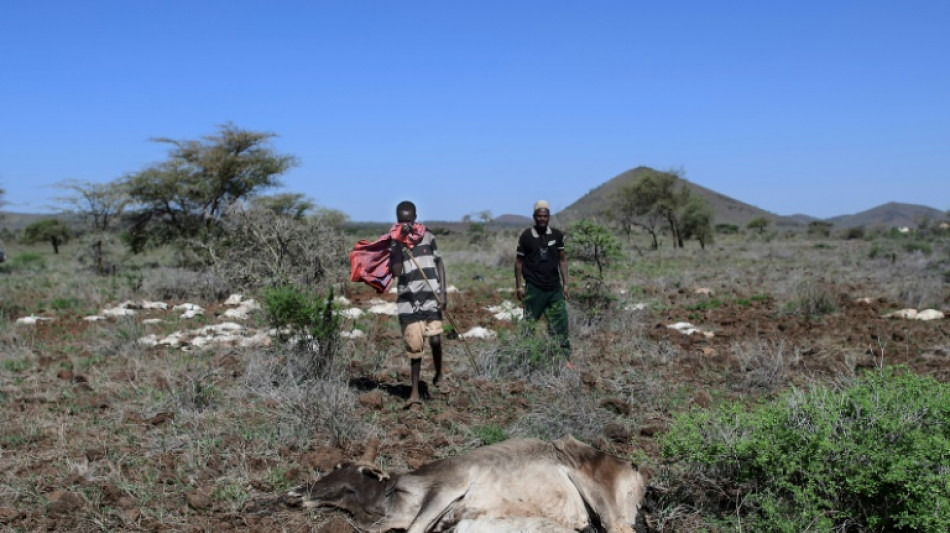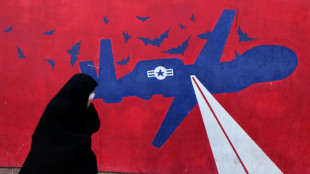
-
 Vonn to provide injury update as Milan-Cortina Olympics near
Vonn to provide injury update as Milan-Cortina Olympics near
-
France summons Musk for 'voluntary interview', raids X offices

-
 Stocks mostly climb as gold recovers
Stocks mostly climb as gold recovers
-
US judge to hear request for 'immediate takedown' of Epstein files

-
 Russia resumes large-scale strikes on Ukraine in glacial temperatures
Russia resumes large-scale strikes on Ukraine in glacial temperatures
-
Fit-again France captain Dupont partners Jalibert against Ireland

-
 French summons Musk for 'voluntary interview' as authorities raid X offices
French summons Musk for 'voluntary interview' as authorities raid X offices
-
IOC chief Coventry calls for focus on sport, not politics

-
 McNeil's partner hits out at 'brutal' football industry after Palace move collapses
McNeil's partner hits out at 'brutal' football industry after Palace move collapses
-
Proud moment as Prendergast brothers picked to start for Ireland

-
 Germany has highest share of older workers in EU
Germany has highest share of older workers in EU
-
Teen swims four hours to save family lost at sea off Australia

-
 Ethiopia denies Trump claim mega-dam was financed by US
Ethiopia denies Trump claim mega-dam was financed by US
-
Norway crown princess's son pleads not guilty to rapes as trial opens

-
 Russia resumes strikes on freezing Ukrainian capital ahead of talks
Russia resumes strikes on freezing Ukrainian capital ahead of talks
-
Malaysian court acquits French man on drug charges

-
 Switch 2 sales boost Nintendo profits, but chip shortage looms
Switch 2 sales boost Nintendo profits, but chip shortage looms
-
China to ban hidden car door handles, setting new safety standards

-
 Switch 2 sales boost Nintendo results but chip shortage looms
Switch 2 sales boost Nintendo results but chip shortage looms
-
From rations to G20's doorstep: Poland savours economic 'miracle'

-
 Russia resumes strikes on freezing Ukrainian capital
Russia resumes strikes on freezing Ukrainian capital
-
'Way too far': Latino Trump voters shocked by Minneapolis crackdown

-
 England and Brook seek redemption at T20 World Cup
England and Brook seek redemption at T20 World Cup
-
Coach Gambhir under pressure as India aim for back-to-back T20 triumphs

-
 'Helmets off': NFL stars open up as Super Bowl circus begins
'Helmets off': NFL stars open up as Super Bowl circus begins
-
Japan coach Jones says 'fair' World Cup schedule helps small teams

-
 Equities and precious metals rebound after Asia-wide rout
Equities and precious metals rebound after Asia-wide rout
-
Do not write Ireland off as a rugby force, says ex-prop Ross

-
 Winter Olympics 2026: AFP guide to Alpine Skiing races
Winter Olympics 2026: AFP guide to Alpine Skiing races
-
Winter Olympics to showcase Italian venues and global tensions

-
 Buoyant England eager to end Franco-Irish grip on Six Nations
Buoyant England eager to end Franco-Irish grip on Six Nations
-
China to ban hidden car door handles in industry shift

-
 Sengun leads Rockets past Pacers, Ball leads Hornets fightback
Sengun leads Rockets past Pacers, Ball leads Hornets fightback
-
Waymo raises $16 bn to fuel global robotaxi expansion

-
 Netflix to livestream BTS comeback concert in K-pop mega event
Netflix to livestream BTS comeback concert in K-pop mega event
-
Rural India powers global AI models

-
 US House to vote Tuesday to end shutdown
US House to vote Tuesday to end shutdown
-
Equities, metals, oil rebound after Asia-wide rout

-
 Bencic, Svitolina make history as mothers inside tennis top 10
Bencic, Svitolina make history as mothers inside tennis top 10
-
Italy's spread-out Olympics face transport challenge

-
 Son of Norway crown princess stands trial for multiple rapes
Son of Norway crown princess stands trial for multiple rapes
-
Side hustle: Part-time refs take charge of Super Bowl

-
 Paying for a selfie: Rome starts charging for Trevi Fountain
Paying for a selfie: Rome starts charging for Trevi Fountain
-
Faced with Trump, Pope Leo opts for indirect diplomacy

-
 NFL chief expects Bad Bunny to unite Super Bowl audience
NFL chief expects Bad Bunny to unite Super Bowl audience
-
Australia's Hazlewood to miss start of T20 World Cup

-
 Bill, Hillary Clinton to testify in US House Epstein probe
Bill, Hillary Clinton to testify in US House Epstein probe
-
Cuba confirms 'communications' with US, but says no negotiations yet

-
 Iran orders talks with US as Trump warns of 'bad things' if no deal reached
Iran orders talks with US as Trump warns of 'bad things' if no deal reached
-
From 'watch his ass' to White House talks for Trump and Petro


Livelihoods lost as climate disaster woes mount in Kenya
Dabaso Galgalo is now used to the smell and grisly spectacle of rotting flesh festering in the scorching heat as Kenya reels from a spate of climate disasters.
Surrounded by barren scrubland littered with withered carcasses of sheep and goats, the 56-year-old pastoralist is struggling to keep his beloved animals, and himself, alive.
What was left of his herd after a months-long dry spell was decimated by once-in-a-generation floods that hit northern Kenya, the latest in a series of unforgiving climate shocks lashing the region.
"We recently had heavy rains and strong winds that ended up killing livestock that had gathered at this water point," he told AFP, outside a settlement called 'kambi ya nyoka' (snake camp) in Marsabit.
The semi-arid region has been the scene of a prolonged drought. Then, when the rains finally came, the deluge pushed communities, who rely exclusively on livestock for their survival, to the edge of disaster.
"This is a very huge loss because we have lost lots of resources following this tragedy," said Galgalo.
"If one had 500 goats (earlier), they have between five and 20 goats left."
Nomadic livestock herders in East Africa's drylands have learnt to cope with the vagaries of weather over decades, driving their relentless search for water and pasture in some of the world's most inhospitable terrain.
But their resilience is being severely tested by climate change.
- Fight for resources -
Poor rainfall in the last quarter of 2021 -- the third consecutive failed rainy season -- followed a devastating locust invasion a year earlier, with animals now too weak to produce milk or too skinny to be sold.
There are growing fears that as the situation worsens, tensions among communities could sharpen as they compete for access to meagre resources.
Marsabit is particularly vulnerable because of a perennial conflict between the Borana and Gabra pastoralist communities.
President Uhuru Kenyatta declared the drought a natural disaster last September, with 2.1 million people -- four percent of Kenya's population -- already grappling with hunger, according to government figures.
The government said last week that 23 of the country's 47 counties faced "food and water stress" while the meteorological department has warned of a potential increase in "human-to-human and human-to-wildlife conflicts".
The authorities have invested 450 million shillings ($3.9 million, 3.4 million euros) to buy 11,250 cattle and 3,200 goats from farmers in the worst-hit counties.
- Africa hardest-hit -
East Africa endured a harrowing drought in 2017 which also brought neighbouring Somalia to the brink of famine.
In 2011, two successive failed rainy seasons in 12 months led to the driest year since 1951 in arid regions of Kenya, Somalia, Ethiopia, Djibouti and Uganda.
With conflicts raging in Ethiopia and Somalia, aid agencies are struggling to assess the true extent of the current crisis.
Experts say extreme weather events are happening with increased frequency and intensity due to climate change -- with Africa, which contributes the least to global warming, bearing the brunt.
For Galgalo, the race is on to save his remaining animals and protect his only source of income.
But he is losing hope.
"They are suffering from pneumonia and are still dying," he said.
T.Ibrahim--SF-PST




